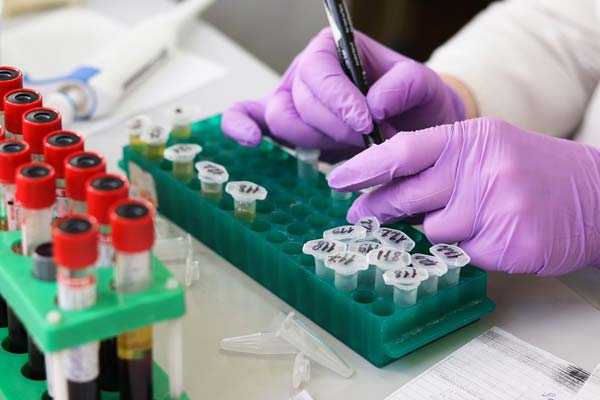Is IB Chemistry Hard? A Clear Answer to Your Question
The question often asked is, “Is IB Chemistry Hard?” Indeed, IB Chemistry is known for its challenging nature, often requiring substantial effort and dedication from students.
The answer to this question is complex, as it depends on various factors, such as the student’s background, study habits, and interest in the subject.
One of the main reasons why IB Chemistry is considered hard is its rigorous curriculum. The course covers various topics, from atomic structure to organic chemistry, and requires students to understand math and science concepts.
Additionally, the course has a heavy workload, including lab work, research projects, and exams, which can be overwhelming for some students.
Despite its challenges, IB Chemistry can be a rewarding experience for students willing to put in the effort.
The course provides students with a deep understanding of the principles and applications of chemistry, which can be helpful in various fields, such as medicine, engineering, and environmental science.
Course Structure and Content
The course centers on two key principles: structure and reactivity, intricately intertwined. Topics covered include:
- Atoms, elements, compounds
- Periodicity
- Chemical bonding
- Mole concept
- Energetics
- Organic chemistry
- Stoichiometry
- Groups and cations
- Equations
- Transition metals
- Entropy
- Kinetics
- Equilibrium
- Redox reactions
- Synthetic pathways
- Measurement and data analysis
IB Chemistry is offered in Standard Level (SL) and Higher Level (HL). Both levels cover the same fundamental topics, but HL delves deeper and introduces additional content. HL students are also tasked with conducting a research project and practical experiments.
The course is delivered through lectures, discussions, and hands-on experiments, nurturing students’ analytical and problem-solving abilities through laboratory work and data interpretation.
HL Vs. SL Chemistry
IB Chemistry is offered at Higher Level (HL) and Standard Level (SL). Both levels cover the same first 11 topics, but HL covers ten additional topics. Here is a comparison of HL and SL Chemistry:
Coursework
HL Chemistry covers more coursework and is more challenging than SL Chemistry. HL students are expected to write university-level research papers by the end of the program. SL students, on the other hand, have a lighter workload and are not required to write research papers.
🌟 Hey Students! 🚀 Ready for the ultimate experience? Join us on Studentsinside.com's Facebook, YouTube, WhatsApp, and LinkedIn. Click now for tips, fun, and success vibes! 🌈✨ #StudentLife #JoinUs
Topics
HL Chemistry covers 22 topics, while SL Chemistry covers only 11. The additional topics covered in HL Chemistry are:
- Topic 12: Atomic Structure
- Topic 13: Bonding
- Topic 14: Energetics/Thermochemistry
- Topic 15: Kinetics
- Topic 16: Equilibrium
- Topic 17: Acids and Bases
- Topic 18: Redox Processes
- Topic 19: Organic Chemistry
- Topic 20: Measurement and Analysis
- Topic 21: Option A-D
Difficulty
HL Chemistry is generally considered more difficult than SL Chemistry. HL students are expected to have a deeper understanding of the concepts covered in the first 11 topics and must apply that knowledge to the additional topics.
On the other hand, SL students have a more fundamental understanding of the concepts and are not required to apply them to the same extent.
University Credit
HL Chemistry is often recommended for college students pursuing science or engineering degrees. Many universities offer credit for HL Chemistry, while SL Chemistry is only sometimes accepted for credit.
Exam and Assessment Structure
The IB Chemistry exam comprises three papers, offering 120 marks. These papers assess students’ grasp of fundamental chemistry concepts, problem-solving skills, and ability to analyze experimental data.
Paper 1: Multiple Choice Questions
Paper 1 comprises 40 multiple-choice questions to be completed within a 60-minute. Each question carries one mark, with no penalty for incorrect answers. Effective time management is encouraged to address all questions adequately.
Paper 2: Structured Questions
Paper 2 consists of structured questions and is worth 95 marks. The exam is 2 hours and 15 minutes long, and students must answer all the questions. The paper covers various topics, including organic chemistry, analytical chemistry, and thermodynamics.
Paper 3: Data-Based Questions
Paper 3 is a data-based question exam worth 45 marks, with a time limit of 1 hour and 15 minutes. The paper consists of two sections, and students must answer all the questions in both sections.
The data booklet is provided to students during the exam, and they are expected to use the information provided to answer the questions.
Internal Assessment
In addition to the exams, students must complete an internal assessment (IA) for the IB Chemistry course. The IA is worth 24 marks and consists of a practical investigation and a written report.
The investigation can be based on any aspect of chemistry, and students are expected to design and carry out their experiments, analyze their data, and draw conclusions.
Extended Essay
The extended essay, a crucial component of the IB Diploma Program, is an independent research project worth 18 marks.
It offers students the opportunity to delve deeply into a topic of personal interest, requiring them to research, analyze, and present their findings cohesively in a structured essay.
Grade Boundaries
The International Baccalaureate Organization (IBO) sets the grade boundaries for IB Chemistry each year. The boundaries are based on the overall performance of students in the exams and internal assessment.
The grade boundaries are published after the exams have been completed, and students can use them to estimate their final grade.
Scoring and Formulas
The IB Chemistry exams are scored out of a total of 120 marks. The marks for each paper are added together to give a total score. Students must achieve a minimum of 24 marks to pass the course. The final grade is granted based on the student’s exam performance and internal assessment.
Practice
Students are encouraged to practice past papers and work through practice questions to prepare for the IB Chemistry exams. The IBO provides various resources for student preparation, including specimen papers, mark schemes, and data booklets.
Rubrics
The IBO provides rubrics for the internal assessment and extended essay. The rubrics outline the criteria that will be used to assess the work and provide guidance on what is expected from students.
Comparison with Other Courses
When comparing IB Chemistry with other courses, it is crucial to consider the difficulty level and the depth of knowledge each course provides.
Here is a brief comparison of IB Chemistry with other courses:
A Level Chemistry
A-level chemistry is known to be one of the most challenging courses in the UK. The content covered in A Level Chemistry is similar to that of IB Chemistry, but the IB content provides students with a deeper understanding of the subject.
For example, the IB content covers demanding concepts like molecular orbital theory, resonance, and hybridization, usually at the degree level. Therefore, IB Chemistry is harder than A-level Chemistry.
AP Chemistry
While sharing similarities, AP Chemistry and IB Chemistry diverge significantly in their learning approaches. AP Chemistry leans heavily on memorization, whereas IB Chemistry emphasizes comprehending and applying concepts. Consequently, IB Chemistry is generally hallenging than AP Chemistry.
University Courses
When it comes to university courses, IB Chemistry is considered to be an excellent preparation for further studies in chemistry.
Many universities worldwide recognize the rigor and depth of the IB Chemistry course and offer credit or advanced standing to students who have taken the course.
However, it is essential to note that the difficulty level of university courses can vary depending on the institution and the specific course.
GED
The GED, acknowledged in the United States and Canada as a high school equivalency exam, may not be directly connected to IB Chemistry.
However, the skills and knowledge acquired through IB Chemistry can assist students in their GED preparations. Moreover, certain universities may consider IB Chemistry a substitute for the GED.
IB Subjects
IB Chemistry is just one of the many subjects the International Baccalaureate program offers. Other challenging IB subjects include Maths HL, English A Literature HL, History HL, Visual Arts HL, and Physics.
Students who take these courses can expect to be challenged and pushed to their limits. Still, they will also gain a deep understanding of the subjects and develop critical thinking and analytical skills to serve them well in their future studies and careers.
Study Materials and Resources
IB Chemistry is a challenging course, and students must have access to quality study materials and resources to succeed. Fortunately, there are many options available that can help students prepare for the exams and understand the material better.
One of the best resources for IB Chemistry students is free online notes. These notes are typically written by experienced teachers and cover all the topics in the IB Chemistry syllabus. Students can use these notes to review the material, clarify concepts they may be struggling with, and prepare for exams.
Another excellent resource for IB Chemistry students is online courses. These courses are designed to help students learn the material in a structured and organized way. They typically include video lectures, interactive quizzes, and other resources to help students understand the material better.
Apart from online courses, students can gain advantages from private tutoring. An effective tutor offers tailored guidance, aids in grasping intricate concepts, and assists with exam readiness and effective study techniques.
IB Chemistry students need access to quality textbooks and other study materials. There are many excellent textbooks available that cover the IB Chemistry syllabus in detail.
Practical Work and Assignments
IB Chemistry involves significant practical work, assignments, and coursework. Practical work is an essential component of the course, with approximately 25% of the total course time devoted to the practical scheme of work (40 hours at SL and 60 hours at HL).
The practical work includes prescribed experiments each school has to run to support and enhance the learning experience in the Diploma Program.
Assignments and coursework are also a critical part of the IB Chemistry course. Students must complete various assignments, including research projects, lab reports, and essays.
These assignments help students develop their research and analytical skills and apply the knowledge gained in class to real-world situations.
Completing practical work and assignments can be challenging, but it is also rewarding. Students who put in the effort and time required to complete the practical work and assignments will be well-prepared for the final exams and better understand the subject.
Students must be organized, disciplined, and committed to succeed in practical work and assignments. They should plan their time carefully, prioritize their tasks, and seek help from their teachers when required.
Students should also take advantage of the resources available to them, including textbooks, online resources, and peer support.








